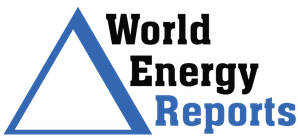Norway: Mandatory Oil Platform Onshore Electricity?
Norway's parliament will try to force oil rigs in a large area of the North Sea to use electricity delivered from onshore, an environmentally friendly move but one that could push up costs and delay projects.
A majority of parliamentary parties announced plans on Friday to require producers in the Utsira High area to get power from shore, a more stringent requirement than the government supports. The requirement would affect some of Norway's biggest projects.
"We're telling the government to demand a comprehensive solution that will encompass the area's full need for power," Labour Party MP Terje Aasland told a news conference. "We're completely certain this can happen without causing delays."
Hydro generators provide around 99 percent of Norway's onshore power, but the platforms, some more than 100 kilometers out to sea, mostly burn diesel and gas to generate electricity.
The Utsira High projects include Statoil's giant Johan Sverdrup field, with up to 2.9 billion barrels of oil equivalent. They also include the smaller Gina Krog project, Lundin Petroleum's Edvard Grieg field and Det norske's Ivar Aasen development.
Oeyvind Eriksen, the head of Aker, which controls oil-service companies Kvaerner and Aker Solutions, said this week that Sverdurp was a key project for Norway and any delay could cost jobs.
Lundin shares fell 3.5 percent on Friday, Det norske was down 4.8 percent and Statoil was down 1.1 percent.
Statoil has committed to power the first phase of Sverdrup from shore, but it has not committed to using onshore power for all Utsira High, where fields are expected to start production starting in late 2015.
Statoil had said earlier such a move could delay Sverdrup by a year and increase costs by 20 billion Norwegian crowns ($3.4 billion).
The government has not backed the onshore requirement. But it only commands a minority in parliament, and its usual supporters have sided with the opposition on the issue.
Statoil, Lundin and Det norske could not be reached for comment.
Reporting by Terje Solsvik, Henrik Stolen and Balazs Koranyi

